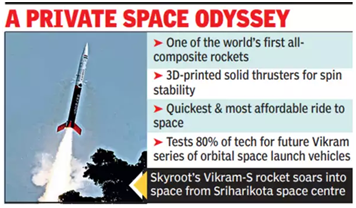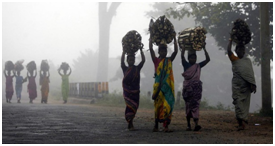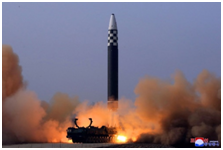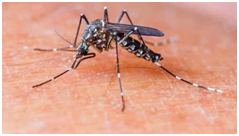

19th November 2022 (7 Topics)
Context
In a historic moment Vikram-S, India’s first privately-developed rocket, lifted off from the Indian Space Research Organization’s (ISRO) launchpad in Sriharikota, under the ‘Prarambh’ Mission.

About
About Vikram-S Rocket:
- It is a single-stage suborbital launch vehicle
- It is India’s first privately developed rocket.
- It is named after Vikram Sarabhai, the founder of India’s space programme.
- It is developed by Skyroot Aerospace with support from ISRO and IN-SPACe (Indian National Space Promotion &Authorization Centre.
- The Vikram-S rocket is a single-stage sub-orbital launch vehicle.
- It will carry three customer payloads and help test and validate technologies in the Vikram series space launch vehicles.
- Its engine was developed using 3D printing with a superalloy.
- The engine used in the launch vehicle is named after former president Dr. A P J Abdul Kalam, ‘Kalam-80’.
- The company is designing three Vikram rockets that will use various solid and cryogenic fuels to carry between 290 kg and 560 kg payloads to sun-synchronous polar orbits.
- Vikram-I can carry 480 kilograms of payload to Low Earth Orbit. It will be powered by a Kalam-100 rocket.
- Vikram-II is equipped to lift off with 595 kilograms of cargo.
- Vikram-III can launch with an 815 kg to 500 km Low Inclination Orbit.
|
About Skyroot
|
Prarambh Mission:
- The Prarambh mission is aimed at carrying three payloads into space, including a 2.5-kilogram payload that has been developed by students from several countries.
- The Prarambh mission and the Vikram-S rocket were developed by the Hyderabad-based startup with extensive support from the Indian Space Research Organisation (ISRO) and IN-SPACe (Indian National Space Promotion and Authorisation Centre).
Significance of privatization of the space sector
- Low costs: It has allowed companies like SpaceX, Blue Origin, etc. to cut their costs substantially and perform operations at reduced costs.
- Creating widespread interest: The publicity of their operations, like live streaming launches, has sparked widespread interest in space exploration among the general public.
- Quick decision-making: There is quick decision-making in private companies while the same process in a public enterprise would have to pass through several stages.
- Higher autonomy: private companies have a greater degree of autonomy in making decisions, which enables them to take up new projects.
|
SHORT ARTICLES |
|
|
Art & Culture World Heritage Week
|
|
|
Polity & Governance Madhya Pradesh Notifies PESA Rules
|
|
|
Economy National Investment and Infrastructure Fund (NIIF)
|
|
|
Environment Red-crowned roofed turtle
|
|
|
Science & Technology North Korea's new Hwasong-17 'monster missile'
|
|
|
Science & Technology Antimalarial drug
|
|
More Articles








